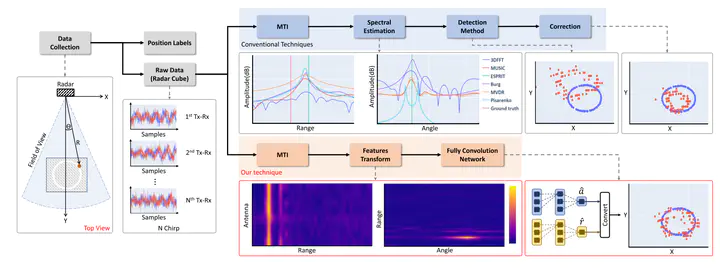Toward Ant-Sized Moving Object Localization Using Deep Learning in FMCW Radar: A Pilot Study

Abstract
We propose a deep learning-based approach to localizing a small moving object with a single millimeter-wave frequency-modulated continuous-wave (FMCW) radar. The main challenge that foils conventional localization techniques, such as 3-D fast Fourier transform (3-D-FFT), Pisarenko method, multiple signal classification (MUSIC), estimation of signal parameters via rotational invariance technique (ESPRIT), Capon’s method, and Burg’s method, is the low signal-to-noise ratio of the reflected signal from millimeter-sized objects. Our key idea is to combine useful but noisy features from classical transforms [e.g., fast Fourier transform (FFT)] with neural networks that can refine and interpret those features into range and angle estimates by training on a large dataset of examples. Importantly, our networks were designed to be translation-equivariant, which enables accurate predictions of unseen object locations and improves the range and azimuth root mean square error (RMSE) scores by 34%–46% and 41%–60%, respectively, over state-of-the-art approaches. This pilot study establishes a new baseline for small-object tracking using FMCW and can enable tracking of small animals, such as ants inside the colony for behavior studies. Our first FMCW-small-object dataset and the source code are publicly available on https://github.com/shikuzen/RA-CNN .